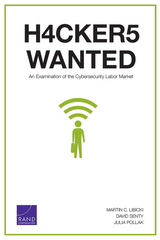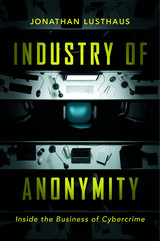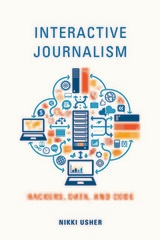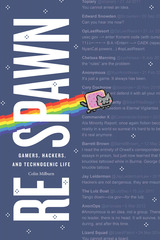
Biohackers explores fundamental changes occuring in the circulation and ownership of scientific information. Alessandro Delfanti argues that the combination of the ethos of 20th century science, the hacker movement and the free software movement is producing an open science culture which redefines the relationship between researchers, scientific institutions and commercial companies.
Biohackers looks at the emergence of the citizen biology community ‘DIYbio’, the shift to open access by the American biologist Craig Venter and the rebellion of the Italian virologist Ilaria Capua against WHO data-sharing policies.
Delfanti argues that these biologists and many others are involved in a transformation of both life sciences and information systems, using open access tools and claiming independence from both academic and corporate institutions.

A double is haunting the world--the double of abstraction, the virtual reality of information, programming or poetry, math or music, curves or colorings upon which the fortunes of states and armies, companies and communities now depend. The bold aim of this book is to make manifest the origins, purpose, and interests of the emerging class responsible for making this new world--for producing the new concepts, new perceptions, and new sensations out of the stuff of raw data.
A Hacker Manifesto deftly defines the fraught territory between the ever more strident demands by drug and media companies for protection of their patents and copyrights and the pervasive popular culture of file sharing and pirating. This vexed ground, the realm of so-called "intellectual property," gives rise to a whole new kind of class conflict, one that pits the creators of information--the hacker class of researchers and authors, artists and biologists, chemists and musicians, philosophers and programmers--against a possessing class who would monopolize what the hacker produces.
Drawing in equal measure on Guy Debord and Gilles Deleuze, A Hacker Manifesto offers a systematic restatement of Marxist thought for the age of cyberspace and globalization. In the widespread revolt against commodified information, McKenzie Wark sees a utopian promise, beyond the property form, and a new progressive class, the hacker class, who voice a shared interest in a new information commons.


The most extensive account yet of the lives of cybercriminals and the vast international industry they have created, deeply sourced and based on field research in the world’s technology-crime hotspots.
Cybercrime seems invisible. Attacks arrive out of nowhere, their origins hidden by layers of sophisticated technology. Only the victims are clear. But every crime has its perpetrator—specific individuals or groups sitting somewhere behind keyboards and screens. Jonathan Lusthaus lifts the veil on the world of these cybercriminals in the most extensive account yet of the lives they lead, and the vast international industry they have created.
We are long past the age of the lone adolescent hacker tapping away in his parents’ basement. Cybercrime now operates like a business. Its goods and services may be illicit, but it is highly organized, complex, driven by profit, and globally interconnected. Having traveled to cybercrime hotspots around the world to meet with hundreds of law enforcement agents, security gurus, hackers, and criminals, Lusthaus takes us inside this murky underworld and reveals how this business works. He explains the strategies criminals use to build a thriving industry in a low-trust environment characterized by a precarious combination of anonymity and teamwork. Crime takes hold where there is more technical talent than legitimate opportunity, and where authorities turn a blind eye—perhaps for a price. In the fight against cybercrime, understanding what drives people into this industry is as important as advanced security.
Based on seven years of fieldwork from Eastern Europe to West Africa, Industry of Anonymity is a compelling and revealing study of a rational business model which, however much we might wish otherwise, has become a defining feature of the modern world.

Nikki Usher brings together a comprehensive portrait of nothing less than a new journalistic identity. Usher provides a history of the impact of digital technology on reporting, photojournalism, graphics, and other disciplines that define interactive journalism. Her eyewitness study of the field's evolution and accomplishments ranges from the interactive creation of Al Jazeera English to the celebrated data desk at the Guardian to the New York Times' Pulitzer-endowed efforts in the new field. What emerges is an illuminating, richly reported profile of the people coding a revolution that may reverse the decline and fall of traditional journalism.

READERS
Browse our collection.
PUBLISHERS
See BiblioVault's publisher services.
STUDENT SERVICES
Files for college accessibility offices.
UChicago Accessibility Resources
home | accessibility | search | about | contact us
BiblioVault ® 2001 - 2024
The University of Chicago Press









